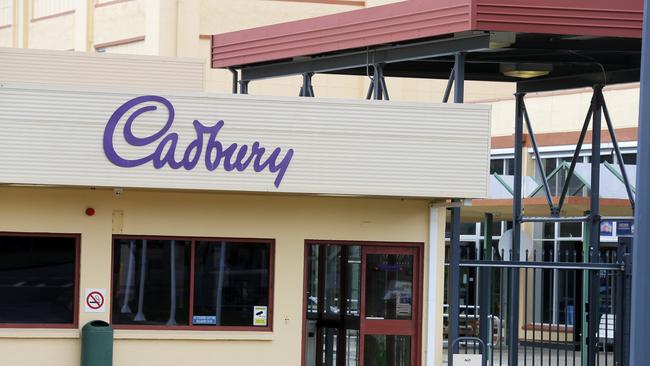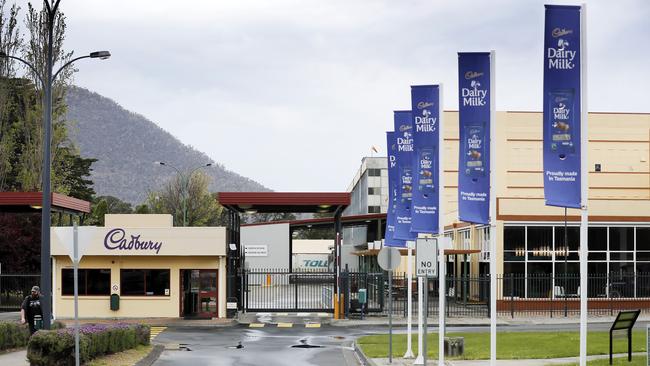Mondelez International criticised for noxious ‘rotten egg gas’ incident at Cadbury factory
After being blamed for effectively forcing a sewage treatment plant offline on Thursday, a multinational company is now facing heat for an earlier incident which authorities said posed a health and safety risk to the community.

Tasmania
Don't miss out on the headlines from Tasmania. Followed categories will be added to My News.
Potentially explosive levels of noxious ‘rotten egg gas’ were discharged into the sewer network in Hobart’s northern suburbs earlier this year as a result of inadequate waste treatment processes at the Cadbury chocolate factory, documents released under Right to Information laws have revealed.
The incident is detailed in a report obtained by the Australian Manufacturing Workers Union (AMWU).
It occurred separately to the situation that saw a TasWater wastewater treatment plant overcome by high-strength trade waste discharged from Mondelez International’s Cadbury facilities at Claremont on Thursday.

The report notes high levels of hydrogen sulphide (H2S), known colloquially as ‘rotten egg gas’, were detected in TasWater’s sewer network on July 17 after an odour in the Claremont area was reported.
The gas was traced to trade waste from the Cadbury factory and Mondelez was subsequently issued a notice to stop discharging the waste to TasWater’s system until the issue was resolved.
Exposure to concentrations of H2S between 5-30 parts per million (ppm) can cause headaches and dizziness, while higher concentrations can lead to neurological failure and even death.
H2S readings of 185ppm were taken at a manhole that exclusively services the Cadbury factory on July 17, while readings of 106ppm were detected from a manhole adjacent to a nearby bike track.
But a Mondelez spokeswoman said “no risks were identified to the health and safety of our team and the community”.
Work to disperse the gas and clean pipes was completed by July 20, at which point Mondelez was permitted to resume discharging trade waste to the TasWater network.
“The presence of H2S in levels detected during this incident posed a health and safety risk to both workers and members of the public through potential inhalation of H2S which can cause serious acute health impacts,” the TasWater report said.
“The presence of an explosive atmosphere posed a risk to both workers and members of the public through the potential for an ignition source to cause an explosion.”
Mondelez is currently undertaking a $3m upgrade of its wastewater treatment plant at the Cadbury factory.

AMWU state secretary Jacob Batt said Mondelez had been aware of issues with their treatment plant since 2022 but “did not conduct upgrades when needed”.
“Workers at Mondelez Cadbury were experiencing headaches and nausea in July, and when production stopped due to the high [H2S] levels, Mondelez allowed workers to stay on site and clean even though no testing had been done inside the factory,” he said.
The Mondelez spokeswoman said operations had ceased at the Cadbury factory for two days in July as a result of the incident and “the health and safety of our team and the community is our utmost priority”.
“After cleaning and air monitoring checks, and in consultation with TasWater and other authorities, operations re-started soon after and ran smoothly,” she said.





